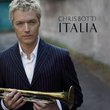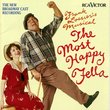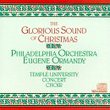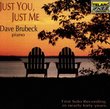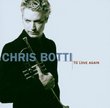| All Artists: George Frideric Handel, Roger Norrington, Orchestra of the Age of Enlightenment, David Daniels Title: David Daniels: Operatic Arias Members Wishing: 0 Total Copies: 0 Label: Virgin Veritas (EMI) Release Date: 12/1/1998 Genre: Classical Styles: Opera & Classical Vocal, Historical Periods, Baroque (c.1600-1750) Number of Discs: 1 SwapaCD Credits: 1 UPCs: 724354532627, 724354532658 |
Search - George Frideric Handel, Roger Norrington, Orchestra of the Age of Enlightenment :: David Daniels: Operatic Arias
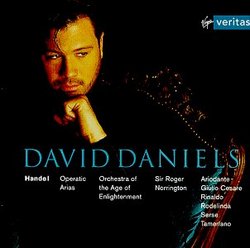 | George Frideric Handel, Roger Norrington, Orchestra of the Age of Enlightenment David Daniels: Operatic Arias Genre: Classical
David Daniels seems to be the current leader of the opera world's March of the Falsettos--and with good reason: he's one of the first countertenors with enough beef in his voice to sound convincing in the heroic castrato r... more » |
Larger Image |
CD DetailsSynopsis
Amazon.com David Daniels seems to be the current leader of the opera world's March of the Falsettos--and with good reason: he's one of the first countertenors with enough beef in his voice to sound convincing in the heroic castrato roles of Handel's operas. His first solo disc is a collection of arias from just those roles--and an impressive debut it is. Daniels has the solid coloratura technique a Handel singer needs and a quick, narrow vibrato that can blend with Baroque instruments without alienating traditional opera buffs. (In fact, he sometimes sounds surprisingly like Marilyn Horne, one of his coaches.) Best of all, he has a musicality and dramatic sense that save the laments and slow serenades from dullness and the bravura showpieces from empty virtuoso display. The performances aren't flawless: Norrington's tempos are occasionally too quick for comfort (Daniels's and the listener's), and Daniels's vibrato sometimes spreads unattractively at the top of his range. He's at his best in the low alto roles that Handel wrote for the great castrato Il Senesino, such as the title roles in Giulio Cesare and Orlando. Let's hope we get to hear him in complete recordings of these operas soon. --Matthew Westphal Similarly Requested CDs
|
CD ReviewsThis voice is very special Neil A. Dellar | McLean, VA USA | 10/26/1999 (5 out of 5 stars) "I first heard Daniels at a performance of Messiah in DC. I ran backstage afterwards to meet this truly exceptional alto who had brought tears to my eyes with his performance. I was also fortunate enough to hear his DC recital and see him in Giulio Cesare at the Met, so I am comfortable in saying that he sounds as good in person as he does on this recording. It is rare for a male alto to be able to bring such expressiveness to his performances. His technique is secure and his singing of, for example, "scherza infida" is simply exceptional. I hope that we get an opportunity to hear him on some full-length operas very soon." A showcase of what a countertenor is capable of Daniel Rodriguez | Houston, TX United States | 08/05/2003 (4 out of 5 stars) "I have to admit that I'm almost exclusively a soprano and mezzo soprano fan, when it comes to operatic voices. Of course, I was intrigued to listen to what a man would sound like in the upper register. David Daniels, being currently "the" countertenor in demand, was a logical choice to start. When I saw this recital at a bargain price in a local classical music shop, I snatched it up right away.The first few tracks of the recital are really the very best. He starts off with a moving interpretation of the popular Handel aria Ombra Mai Fu, exploring its lamentative undertones in a gripping manner. Va Tascito... from Giulio Cesare is given an equally moving interpretation. Daniels avoids sounding "hooty" and superlative, instead treating us to a superb legato and fine pianissimi. Of course, given that Giulio Cesare is his favorite role, one would expect no less.Al Lampo del Armi is the one aria of the recital where you can most hear the presence of his famous vocal coach, the legendary Marilyn Horne. His powerful vocal attack evokes her heralded technique. By the way, if you are interested in hearing Marilyn Horne's Handel arias, there is a compact disc recital available that also includes arias from Vivaldi's Orlando il Furioso.My other two favorite arias are Ah, Dispetto and L'angue Offeso, the latter an especially poignant rendition with subtle variations throughout.Unfortunately, I feel compelled to also point out the bad selections included in this recital. First off, he dares to take on Scherza Infida, from Ariodante. In the last decade, full studio recordings of this opera surfaced, with critically praised interpretations by Anne Sophie von Otter and Lorraine Hunt Lieberson. I was especially fortunate to hear popular mezzo Susan Graham's Ariodante last year, with Houston Grand Opera. I still get shivers when I think of her go-for-broke, authoratative, bravura performance, which was executed under some very difficult conditions as part of the David Alden production. For Scherza Infida, she had to sing it while slowly sliding, upside down, off a large cupola suspended from the ceiling. She pulled it off flawlessly, although she admits that it was her most difficult performance ever. Needless to say, Daniels has nothing on these fine ladies. His Scherza Infida is, at best, a worthy effort, but the aria is above the tessitura in which he is comfortable, and the result is a weak tone and flawed navigation of the coloratura. The fact that it is conducted poorly, with only a fraction of the pathos, doesn't help.The other letdown is Venti, Turbidi from Rinaldo. It is really a slapdash effort, with very messy coloratura. Here, he lets down Marilyn Horne, who herself thrilled audiences both in the studio and onstage with her rendition. This is especially sad, since he went on to record the entire opera in the studio, in a critically praised recording with Cecilia Bartoli, conducted by Hogwood. I haven't heard the full studio recording, but I really hope that he improved on this pitiful showing.All said, this is a Handel recital that has more than enough gems to justify a spot in your opera collection." A Truly Great Singer Carlos Rochin | Denver, Colorado USA | 08/23/2000 (5 out of 5 stars) "Bowman has much too much of the flat English edge to his voice & Scholl is good, if not memorable. Asawa is, indeed, very good, but David Daniels is a truly great singer. His musicianship, technical mastery of the genre & sheer beauty of tone leaves one wanting more. I can only say further, that I look forward, with great anticipation, to his pairing with the exquisite soprano of Bejun Mehta in Giulio Cesare in Los Angeles in February of 2001 & to the release of his newly recorded Rinaldo."
|

 Track Listings (16) - Disc #1
Track Listings (16) - Disc #1
